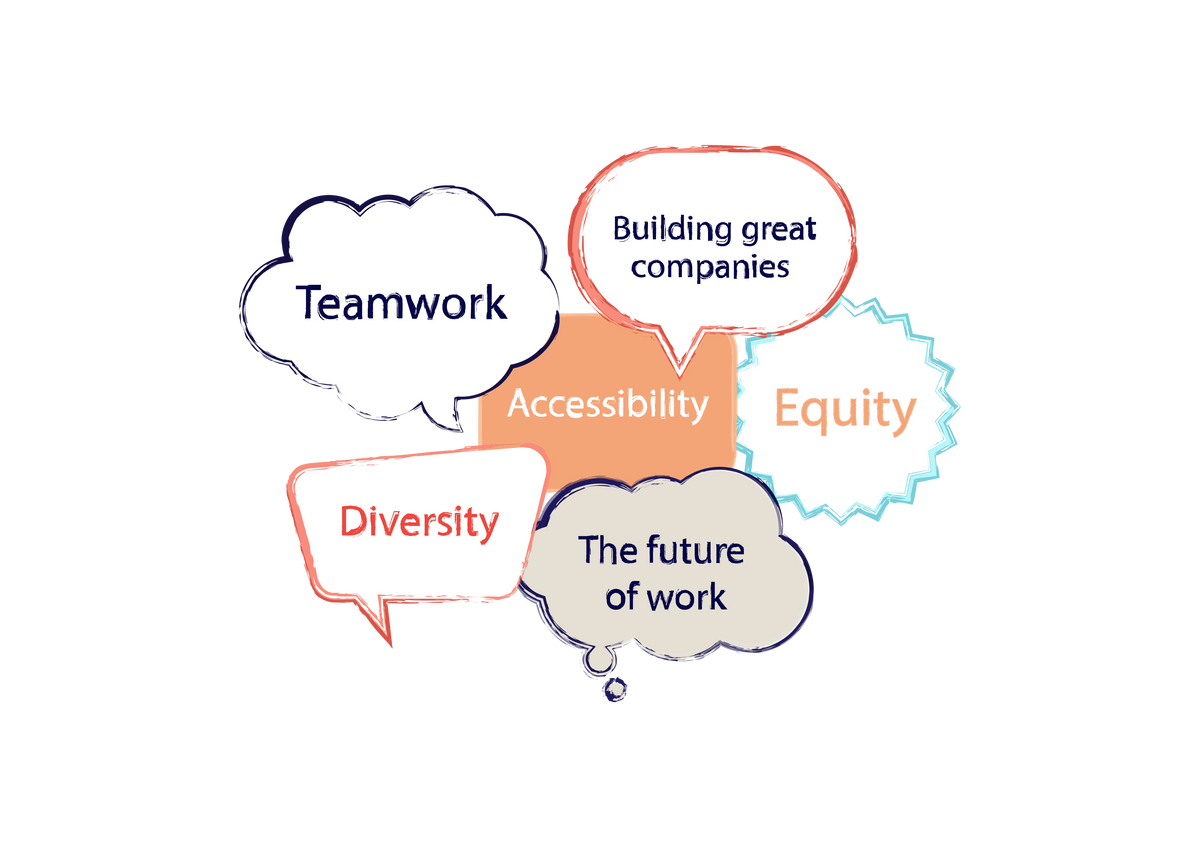Building a Time-Conscious Culture: The Key to Organizational Success
In today’s fast-paced world, time management is more than just an individual skill—it’s a collective effort that can significantly impact the culture of an entire organization. Building a time-conscious culture within a company or team is essential for improving productivity, fostering employee satisfaction, and ensuring that organizational goals are achieved in a timely and efficient manner.
This article explores the concept of a time-conscious culture, why it is crucial for modern organizations, and actionable strategies for creating one that promotes both efficiency and work-life balance.

What is a Time-Conscious Culture?
A time-conscious culture refers to an organizational environment where time management is valued, prioritized, and effectively integrated into the daily operations. Employees and teams are encouraged to respect time—both their own and others’—by adhering to schedules, meeting deadlines, and being mindful of how time is spent.
In a time-conscious culture, time is treated as a precious resource, and its efficient use is essential for business success. Organizations that foster this type of culture see higher productivity, more efficient workflows, and improved overall performance.
Why is Time-Consciousness Important for Organizations?
1. Increased Productivity
A time-conscious organization ensures that employees are focused and can complete tasks within specified timelines. By reducing wasted time and eliminating inefficiencies, teams can achieve more in less time. Time-blocking and prioritization help ensure that employees focus on high-impact tasks first, leading to better productivity.
2. Improved Employee Well-being
When employees are conscious of time and manage their workload effectively, they are less likely to experience burnout. Time-conscious practices help maintain work-life balance, which in turn improves overall well-being and job satisfaction.
3. Better Decision-Making
A time-conscious organization values time-sensitive decisions. This means that decision-makers work with deadlines in mind, helping the company move forward faster. Having a clear understanding of the time constraints ensures that strategic moves are made promptly, without delay.
4. Increased Profitability
Efficient time management directly impacts the bottom line. By improving time management across teams, organizations can complete projects faster, deliver results more efficiently, and reduce costs. A time-conscious culture helps companies maximize their resources, leading to increased profitability.

Strategies for Building a Time-Conscious Culture
Building a time-conscious culture requires a combination of leadership, technology, and well-defined processes. Below are practical strategies to cultivate a time-conscious environment within your organization.
1. Set Clear Expectations and Goals
A fundamental aspect of time-consciousness is clarity. Employees must know what is expected of them and by when. Set clear, measurable goals and establish deadlines to keep everyone on track. Break down large goals into smaller, more manageable tasks with specific time frames to avoid procrastination.
Actionable Tip:
- Use SMART goals (Specific, Measurable, Achievable, Relevant, Time-bound) to ensure clear and actionable objectives.
2. Prioritize Tasks Effectively
Time-conscious organizations place a strong emphasis on prioritization. Eisenhower’s Urgent/Important Matrix can be a great tool to help employees identify tasks that are both urgent and important, versus tasks that can be delegated or eliminated altogether.
How to Use the Matrix:
- Urgent and Important: Do these tasks immediately.
- Important but Not Urgent: Schedule time to do these tasks.
- Urgent but Not Important: Delegate these tasks if possible.
- Not Urgent or Important: Consider eliminating these tasks.
3. Leverage Time Management Tools
Modern technology provides powerful tools to streamline time management within organizations. Tools like Trello, Asana, and Monday.com help employees stay organized by visually tracking their tasks, projects, and deadlines. Additionally, time-tracking software like Toggl can provide insights into how time is being spent, helping teams identify bottlenecks and improve processes.
Recommended Tools:
- Trello – For task management and collaboration.
- Asana – For project management and tracking deadlines.
- Toggl – For tracking time spent on tasks and projects.

4. Promote Flexibility and Autonomy
A time-conscious culture doesn’t mean rigid schedules. Instead, it allows for flexibility and autonomy. Trust your team to manage their time, while providing them with guidelines to ensure they stay on track. Allowing employees to choose their working hours or work from home when necessary can enhance motivation and increase productivity.
Actionable Tip:
- Implement flexible work hours and focus on results, not just hours spent at the desk.
5. Encourage Focused Work Time
Multitasking can hinder productivity and lead to mistakes. Encourage employees to dedicate specific blocks of time to single tasks. This time-blocking method helps employees focus without interruption. Use tools like Focus Booster or Forest to help team members stay on task and avoid distractions.
Tip for Focus:
- Promote the use of Do Not Disturb modes in communication tools during focused work time.
6. Instill a Culture of Accountability
In a time-conscious culture, accountability is key. Team members must take responsibility for their tasks and deadlines. Encourage employees to communicate openly about challenges they may face in meeting deadlines and provide the necessary support to overcome these obstacles.
Actionable Tip:
- Hold regular check-ins to review progress and adjust timelines if necessary.
Overcoming Challenges in Creating a Time-Conscious Culture
While the benefits of a time-conscious culture are clear, implementing one can present several challenges. Here are some common obstacles and ways to overcome them:
1. Resistance to Change
Some employees may resist adopting new time-management practices, especially if they are accustomed to more flexible or unstructured work habits. To overcome this, ensure that the entire team understands the benefits of time-consciousness and how it contributes to both individual and organizational success.
Overcoming Resistance:
- Lead by example. Senior leaders should model time-conscious behaviors, such as punctuality and prioritization, to inspire others.
2. Overburdening Employees
Overloading employees with unrealistic expectations and tight deadlines can backfire, leading to burnout and decreased productivity. It’s crucial to set realistic goals and ensure that the workload is evenly distributed.
How to Avoid Overburdening:
- Regularly assess workload balance through tools like Workload Planner or Team Capacity Planner.
3. Ineffective Communication
A lack of effective communication can lead to misalignment, missed deadlines, and confusion about priorities. To foster a time-conscious culture, encourage open communication channels and regular updates on progress.
Actionable Tip:
- Utilize Slack or Microsoft Teams for clear, real-time communication.
Benefits of a Time-Conscious Culture
1. Enhanced Productivity and Efficiency
By reducing time wasted on unimportant tasks, a time-conscious culture enables employees to focus on what truly matters. This leads to a significant increase in productivity and efficiency across all departments.
2. Better Work-Life Balance
A time-conscious environment promotes balance by ensuring employees are able to manage their time effectively, resulting in less stress and greater satisfaction both at work and at home.
3. Higher Employee Engagement
Employees who feel they have control over their time and are held accountable for meeting deadlines tend to feel more engaged in their work. This leads to increased motivation and a more proactive team.
4. Faster Decision Making
Time-conscious organizations tend to make decisions faster due to clear timelines and well-defined goals. This allows the company to remain agile and adapt quickly to changing circumstances.
FAQs About Building a Time-Conscious Culture
1. How can a company encourage employees to be more time-conscious?
Provide employees with time management tools, set clear expectations, and foster a culture of accountability. Encouraging regular check-ins and promoting autonomy can also help.
2. What role does leadership play in creating a time-conscious culture?
Leadership sets the tone for the organization. By modeling time-conscious behaviors, communicating expectations clearly, and promoting efficient work habits, leaders can guide their teams toward greater productivity.
3. How do you balance flexibility with time-consciousness?
Balance flexibility with deadlines. Encourage employees to work within a flexible framework, but ensure that they remain focused on the end goals and meet their time-bound commitments.
Conclusion
Building a time-conscious culture within an organization is not only beneficial for productivity but also fosters a positive work environment that supports both personal and professional growth. By setting clear goals, encouraging focused work time, and utilizing time management tools, organizations can create a culture that values both efficiency and employee well-being.
As businesses continue to evolve, embracing time-conscious practices will be essential for staying competitive and maintaining a motivated, engaged workforce. Start building a time-conscious culture today, and watch your organization thrive.

